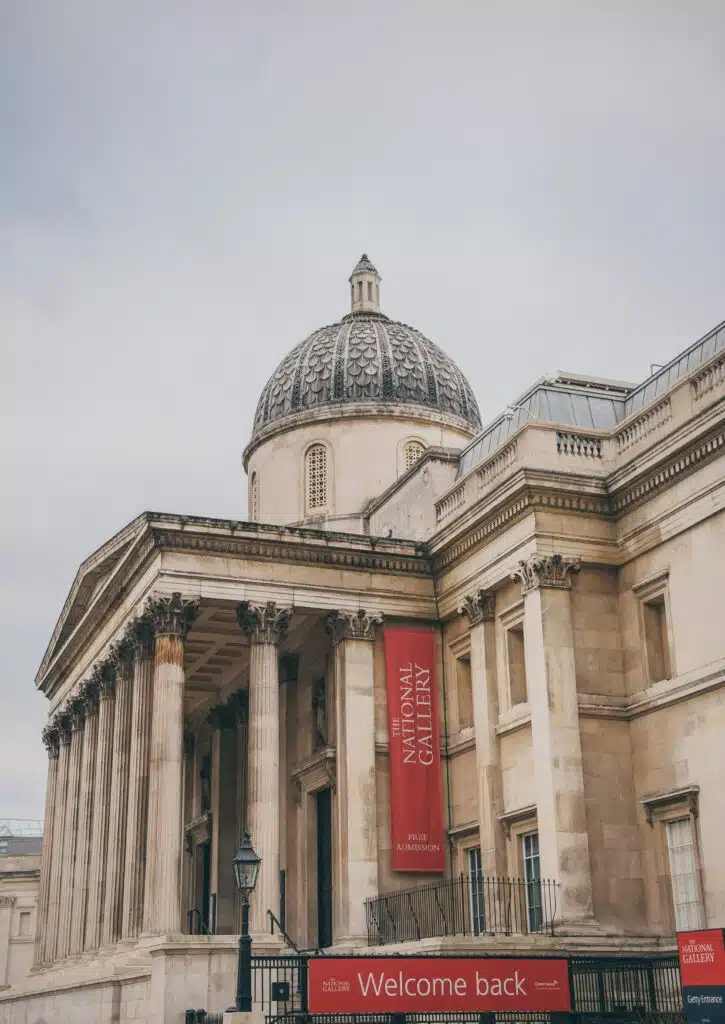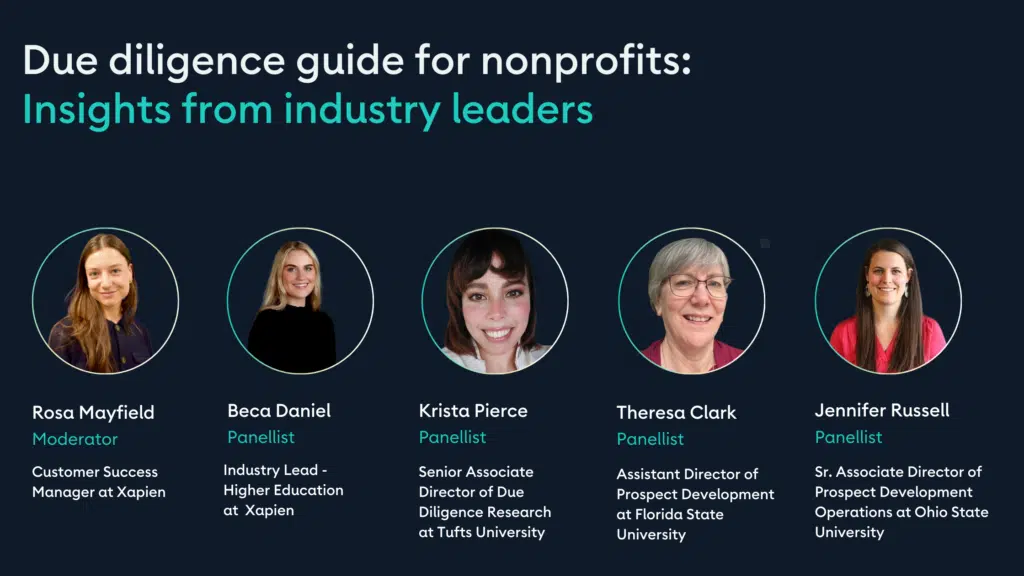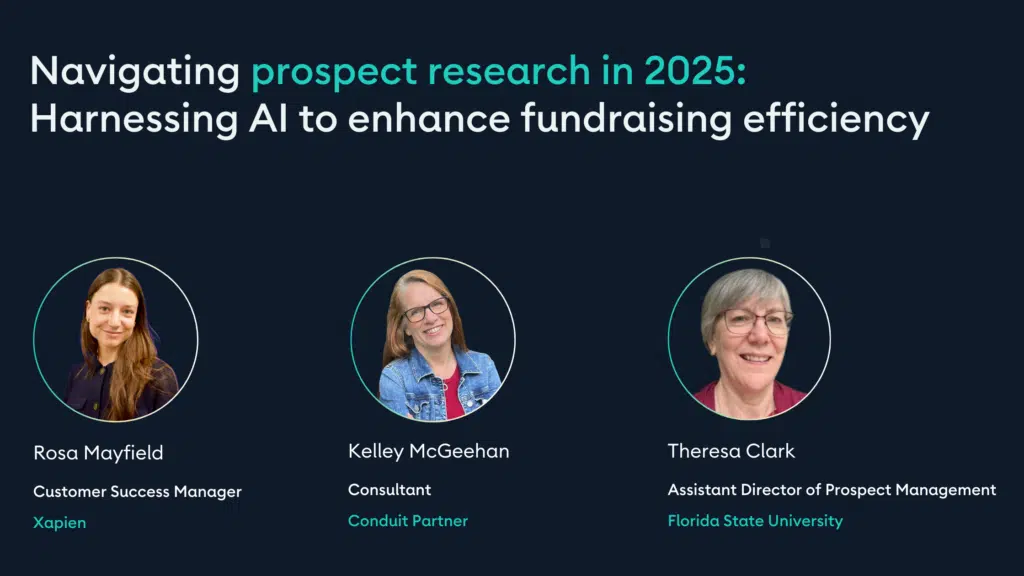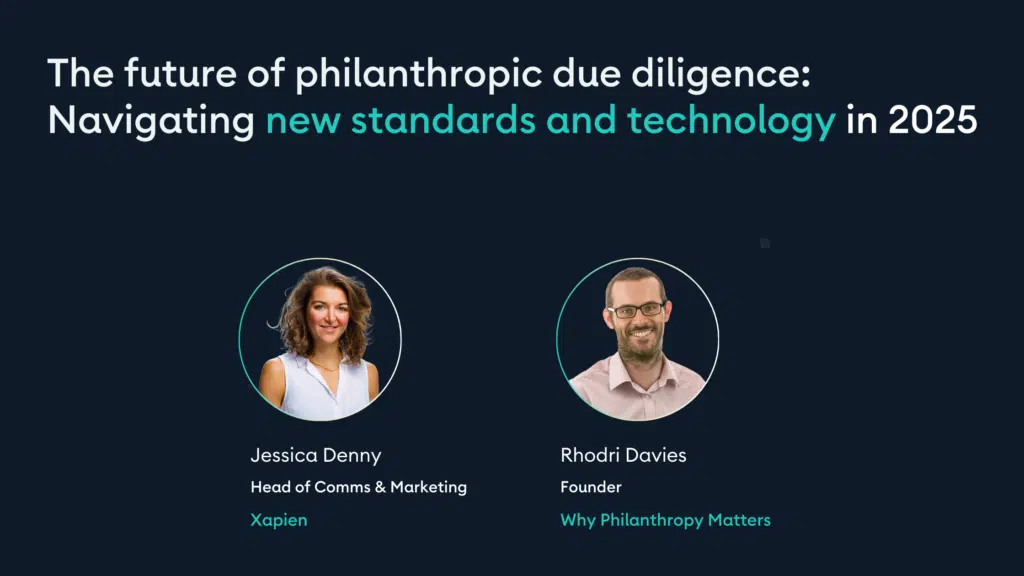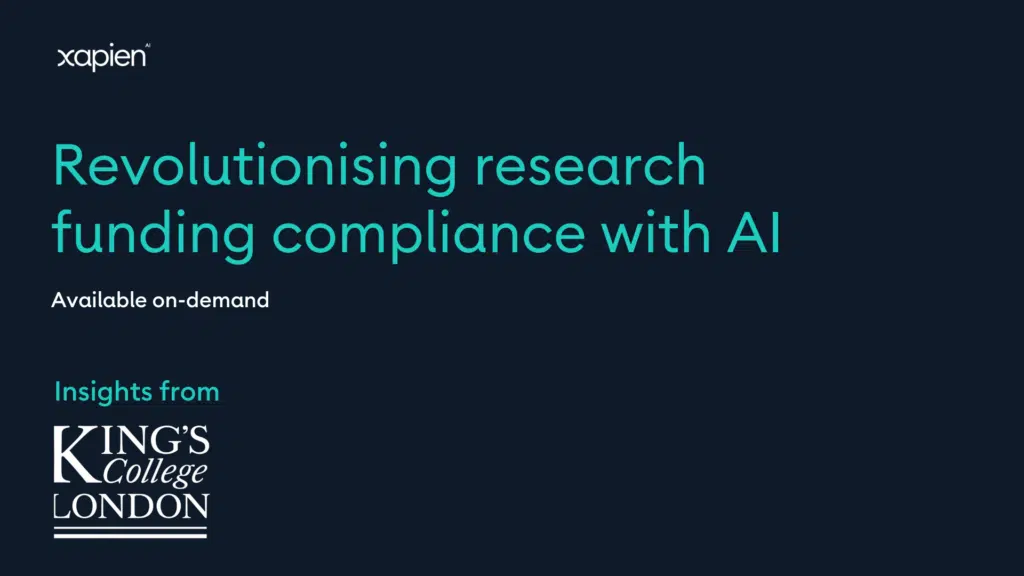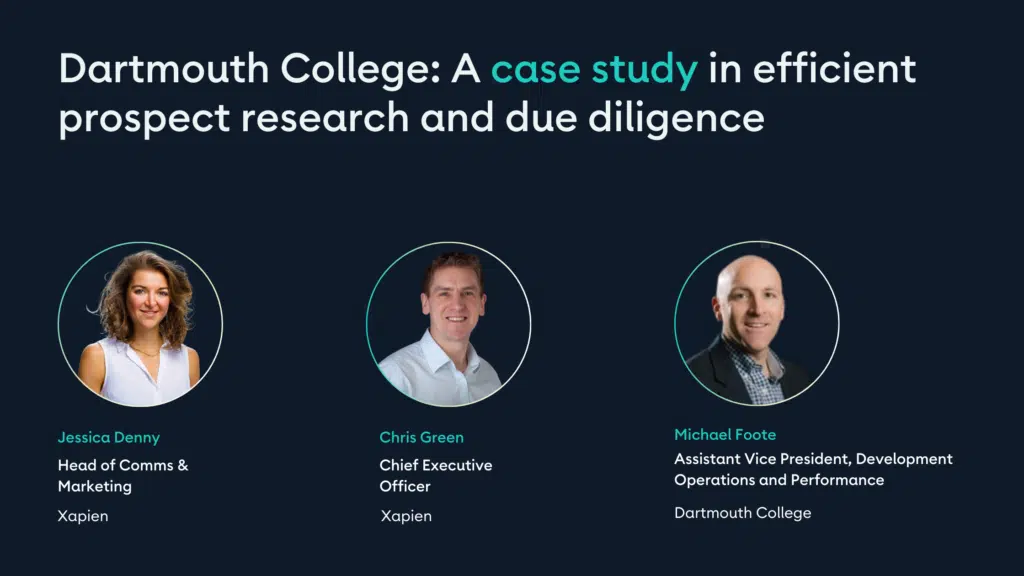Streamlining prospect research at the National Gallery
The National Gallery’s Development Research team transformed its prospect research and due diligence process with Xapien’s AI-driven platform—streamlining workflows, saving time, and supporting risk-aware fundraising decisions while maintaining the highest standards of integrity.
Read MoreDue diligence guide for nonprofits: Insights from industry leaders
Prospect research in 2025: Harnessing AI to enhance fundraising efficiency
Due diligence playbook for nonprofits
Prospect research reports in under 20 minutes at the YMCA
How the YCMA’s fundraising team generates prospect research reports in under 20 minutes.
Read MorePhilanthropic due diligence in 2025
Research funding compliance with King’s College London
Andy discussed how UKRI has enhanced its approach to risk awareness, adopting a more mitigative protocol to minimise threats. This includes new principles that require more extensive due diligence, particularly when working with global partners in regions like Africa, Southern Asia, and South America. The initiative aims to protect research integrity, intellectual property, and the reputation of both the UK and institutions like King’s College London. Compliance with UKRI’s international due diligence guidelines is now essential, which includes assessing sustainable deliverables and evaluating organisations based on risk.
Read MoreWhy Dartmouth College trusts Xapien for reputational risk checks
Dartmouth College’s 200-year-old reputation was at risk when it engaged with a donor offering a substantial restricted capital gift. The donor was frequently targeted by demonstrators who would follow them around the country during engagements. Any public association with the donor risked similar demonstrations and negative publicity for the College. This led its Associate Vice President (AVP) of Development, Operations, and Performance to establish a framework for assessing reputational risk and create a process to manage it with the right tools and systems.
Read MoreCustomer story: WaterAid
Ethical and reputational due diligence is a critical component of WaterAid’s organisational strategy. Given WaterAid’s reliance on partnerships with various donors, suppliers, and collaborators, maintaining a robust process for identifying potential risks and opportunities is essential. This need has become even more pronounced with growing global attention on sustainability, financial crime, and governance issues. To address these challenges, WaterAid implemented Xapien to provide ethical checks and streamline information gathering across various departments.
Read MoreWebinar: Dartmouth College case study
Reputational risk at Dartmouth College became a significant concern around 2018-2019, following high-profile cases like the Sackler family. These incidents highlighted the need for better management of philanthropic gifts to avoid negative associations. Dartmouth sought to establish clearer guidelines for reputational risk, initially looking at what other organisations were doing. Their first major experience involved a donor who disclosed that demonstrators often followed him, raising potential publicity risks. However, at the time, tools to assess reputational risk were limited. Dartmouth hired a company that provided a lengthy, expensive dossier, but the process was inefficient. Over time, they explored other tools but continued seeking a more efficient, confidence-building solution to identify red flags and risks associated with potential donors. Then, they found Xapien which has since centralised and streamlined reputational risk management.
Read More